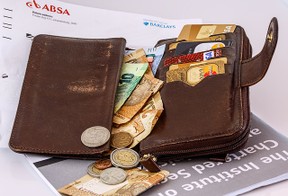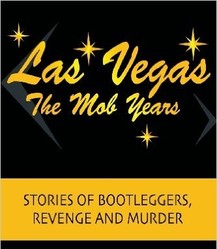I don’t like to think of myself as a victim, but I find myself in the position where I am the subject of identity theft. It’s annoying, time-consuming, frustrating and quite sickening. It’s estimated that it can take six months to sort it all out, and that now makes perfect sense to me. As the person or persons who have stolen my identity have my real date of birth, all the companies concerned think I’ve just gone a bit mad. Only one, so far, took me seriously from the start.

Identity Theft and How it Feels
by Telesto
Identity theft is time consuming at best and damaging to someone’s credit rating and can cost them money at worst. How do I know? It’s happened to me and trying to sort it out is
How it Feels to be a Victim of Identity Theft
I hate to use the word “victim” in the same sentence as “I” or “me” or my name, but on this one occasion, I have to. I am the victim of Identity Theft. Someone, or some people, have managed to get hold of my personal details, including my true date of birth, and are attempting to commit fraud with those details.
I first suspected this had happened in December, when I did one of my credit reference agency checks, but I had it confirmed last week. I felt sick. I still do, when I find that more checks have been done on me. The worst thing is, I am really careful with my personal information, but it seems that those who have online businesses are more susceptible than others, because so much of their information is “out there.” I’ve read that it can take six months and more than 200 hours of work by the person whose identity has been stolen to sort it out, and it’s certainly shaping up that way.
The potential problems for me are that someone defaults in my name and not only does that lower my credit score; it also means that, unless I can prove otherwise, the bailiffs can turn up on my doorstep because there is a debt outstanding in my name.
The thieves have only been trying to take insurance in my name, so far, at any rate. I couldn’t understand how they’d make money out of this, but I now know that, one way at least, is that they go to cash back sites, set up insurance and when they get the cash, default on paying the money. Not a bad way to make a few bob.
 | Identity Thief Jason Bateman (Horrible Bosses) and Melissa McCarthy (Bridesmaids) lead an all-star cast in this hilarious blockbuster hit. Unlimited funds have allowed Diana (McCarthy) to live... |
 | Identity Theft Has the Messiah been robbed?Supernatural visitations. Divine time travel. An age-old cover up.In the middle of it all: One man miraculously transformed by Yeshua.In an instant, ... |
What is the difference between Identity Theft and Identity Fraud?
Identity theft is when someone gets hold of your personal information and opens up other accounts in your name, such as credit card accounts, or, as in my case, insurance. This is known as “true name identity theft.” The thief may also try to take over your other accounts.
Identity fraud is when a false identity is set up and the thief sets up accounts in that name. I’m not an expert in this, but I think it must be harder to do it this way as there is no previous information to search against. The thieves that do this usually commit true name theft as well.
The thing here is that until someone actually loses money or some other financial loss, there is no offence, at least not in the UK. It is not illegal for someone else to ask for an insurance quotation in my name, and if an insurance company “blocks” my details, I will never be able to get insurance again.
The UK government reckons that 120,000 people are affected every year, and it’s growing. Let’s face it, it’s a much easier job to sit in front of a computer and tap in some details than actually going out and breaking into a house to steal something.

How did they get my details?
My name and address – easy. I advertise online for writing, so that’s not difficult. My date of birth? No idea. The month and the year are on Facebook, but I think I am very careful about personal information. I do most of my banking online, but what paper statements I do have are shredded. I always make sure that my anti-virus software is up-to-date and I change passwords regularly. In fact, I do most of the things that are recommended to protect from identity theft. My driving licence was stolen just over a year ago, when I was on holiday in Thailand, so maybe it’s taken that long to get back here. Who knows? London is the identity theft capital of the UK, with residents being four times more likely to be targeted than those who live elsewhere.
 | Hackers: Heroes of the Computer Revolution - 25th Anniversary Edition This 25th anniversary edition of Steven Levy's classic book traces the exploits of the computer revolution's original hackers -- those brilliant and eccentric nerds from the lat... |
 | Hackers & Painters: Big Ideas from the Computer Age "The computer world is like an intellectual Wild West, in which you can shoot anyone you wish with your ideas, if you're willing to risk the consequences. " --from Hackers & Pai... |
What can you do to protect your identity?
-
Shred documents containing personal information. Identity thieves do go through bins. I used to shred things and then put them in my recycling bin. Now my local council won’t let us recycle shredded paper, because it stops the recycling machine working. I think there is something wonderful about the thought of an identity thief going through my waste cat litter mixed up with shredded bank statements. May they’ll catch something nasty too.
-
Check your bank statements and credit card statements carefully. If there is something you don’t recognise, get on to the company straight away to let them know. We all have a responsibility to protect our data, but so do the banks and credit cards. In the UK, they can be fined if they don’t.
-
Check your credit report regularly. It was during one of my regular checks that I found something was wrong. There are three credit reference agencies in the UK. You can join one for free, the others charge, but you can request a copy of your credit report for only £2, which is cheaper than joining, unless you get a reduced rate deal. I get membership of one through a credit card that I hold, and they email me every time there a change to something on my file. Not every bank or insurance company uses the same credit reference agency, so you need to check all of them.
-
Be careful what you share on social network sites. I’ve never understood why people would put so much personal information and then say, “I’m off on my holibobs tomorrow.” You’re just telling burglars that your house will be empty. But also, you can give out too much information, making it easier for fraudsters to get personal information.
- Take care of important documents. Don’t carry your passport or driving licence with you unless necessary. (Unless you live in a country where it’s compulsory, it’s not in the UK.) If your documents are stolen, someone else has your personal details.
-
Always report thefts, not just to the police, but to the relevant bank or credit card company.
-
Check for missing letters – if you are expecting something that doesn’t arrive, let the company sending it know. If it’s a credit card, the company will need to cancel that one and issue a new one. Yes, it’s all a huge pain, but it has to be done. If you move house, make sure that you notify all companies of your change of address and use the post office redirection service. I usually do it for at least six months, just to make sure that I haven’t forgotten to tell someone.
-
Make sure that are registered to vote at the right address. It’s now possible to opt-out of the having your information shown on the full register, which is safer, as it’s available for sale to commercial companies.
-
Do not ever, ever, ever give out your PIN number. If someone rings and says they are the bank, etc, and wants personal information for security, don’t give it without checking – I usually ring people back, having checked the number on the internet first. I don’t take anybody’s word for it that they are who they say they are.
-
Be careful when you download anything, especially links to games or videos. A friend of mine recently had his computer infected with a Remote Access Trojan. He sat there watching a live feed of himself online and now has to pay for the privilege of having his computer cleaned up. Deep Joy.
-
Be careful with your passwords and do change them regularly.
You might also like
Las Vegas and the MobLas Vegas was better when the mob ran it. Or was it? Depends on who you tal...
Goldilocks and Three BearsGoldilocks and Three Bears is a popular story for children with a great narra...



 Barts Hospital - a National Treasureon 01/24/2015
Barts Hospital - a National Treasureon 01/24/2015
 Urban Foxeson 01/11/2015
Urban Foxeson 01/11/2015
 How do you know which hosting platform to choose?on 01/03/2015
How do you know which hosting platform to choose?on 01/03/2015
 The Biggest Fire Since the Great Fire of Londonon 12/30/2014
The Biggest Fire Since the Great Fire of Londonon 12/30/2014



Comments